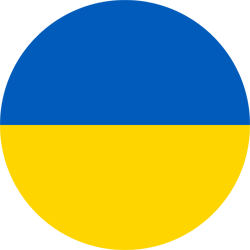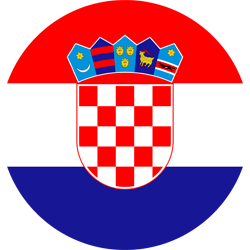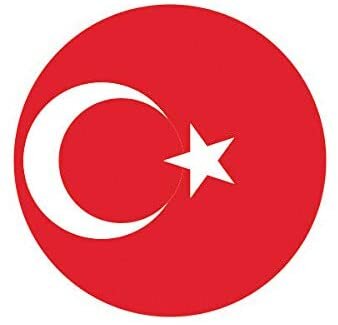ADHD Treatment in Dubai
Attention-Deficit/Hyperactivity Disorder (ADHD) is characterized by a pattern of behavior, affecting the individual in multiple fields (e.g., school and home), that can result in performance issues in social, educational, or work settings. Symptoms are divided into two categories, inattention and hyperactivity/impulsivity, that include behaviors such as: failure to pay close attention to details, difficulty organizing tasks and activities, excessive talking, fidgeting, or an inability to remain seated in appropriate situations. Symptoms of ADHD typically being in childhood but can continue into adulthood for some people. (DSM-5, American Psychiatric Association).
According to the DSM-5, ADHD is one of the most common neurodevelopmental disorders of childhood. We see ADHD in Dubai at around the same rate as the rest of the world. The global prevalence of ADHD in children and adolescents is around 5-7%, and 50% of diagnosed cases persist in adulthood. Symptoms typically start to appear from the ages of 3-6, and the average age of diagnosis is 7. ADHD is twice as common in boys than girls, with a ratio of 2:1, however, it is often overlooked in girls because they may be more withdrawn and inattentive rather than hyperactive and impulsive. Current studies even show that in some cases, ADHD has a later onset in girls often after childhood, typically in late adolescence/early adulthood.
Our ADHD specialists are here to help you, whether you need to heal or want to thrive.
Get in touch to find out how we can help you. Contact us however you feel most comfortable, for example Whatsapp message us, or feel free to call us on +971 56 895 2347. You can also email or simply send us a query via our online form. Instagram message, Facebook chat… whatever works best for you!
Our goal is to make you comfortable.
There are three types of ADHD:
1. Predominantly Inattentive (ADHD-I)
It describes people who are easily distracted and have difficulty paying attention, but who aren’t hyperactive or impulsive. This is now used instead of the outdated term ‘ADD’.
Children must have at least 6 inattentive symptoms, but less than 6 hyperactive/impulsive symptoms present for diagnosis. At 17 years and older, you need at least 5 inattentive symptoms and fewer than 5 hyperactive/impulsive symptoms.
According to the DSM-5, symptoms of this include:
Failing to pay close attention to details or makes careless mistakes in schoolwork, at work, or with other activities.
Trouble sustaining attention on tasks or activities.
Seeming to not listen even when directly being spoken to.
Not following instructions, and failure to finish schoolwork, chores, or work duties (e.g., loses focus, gets side-tracked).
Trouble organizing tasks and activities
Avoiding, disliking, or hesitating to do tasks that require mental effort for a long period (e.g., schoolwork or homework)
Losing things that are necessary for tasks and activities (e.g., pencils, books, school materials, wallets, keys, mobile phone)
Being easily distracted
Being forgetful even in daily activities
Children with ADHD-I can pay attention when doing things and enjoy or listening to/reading about things they are interested in, but they tune-out when the task is repetitive or boring. They also have trouble concentrating if things are happening around them, and usually need a quiet environment to stay attentive. People with ADHD-I may go undiagnosed as they don’t tend to disrupt the classroom. This type is also more common among girls.
2. Predominantly Hyperactive/impulsive (ADHD-HI)
This is when a person is overly excitable and impulsive but not inattentive. Children need at least 6 hyperactive/impulsive symptoms and fewer than 6 symptoms of inattention present for diagnoses. For ages 17 or older, you need at least 5 of these symptoms and fewer than 5 inattentive ones.
According to the DSM-5 symptoms of this type include:
Fidgeting, squirming in the seat, or tapping hands or feet
Leaving seat in situations when they shouldn’t.
Running around in situations where it is not appropriate (adolescents or adults may be limited to feeling restless).
Inability to play or take part in leisure activities quietly.
Being constantly “on the go” acting as if they are “driven by a motor”.
Talking excessively.
Blurting out an answer before a question has been completed.
Trouble waiting for their turn.
Interrupting or intruding others (e.g., butting into conversations or games they are not part of)
Children with ADHD-HI are not able to censor themselves as much as other kids, thus tend to interrupt conversations, invade people’s space, ask irrelevant and overly personal questions, and distract people in the class. Those with impulsive symptoms are usually moody and overreact. Although inattention is less of a concern in this type of ADHD, they may still find it difficult to focus on things.
3. Combined (ADHD-C)
Combined ADHD is when a person has symptoms of inattention, hyperactivity, and impulsivity. Children must have at least 6 symptoms from both lists to get this diagnosis. Those 17 or older must have 5 symptoms from ADHD-I and 5 AHDH-HI. This is the most common type of ADHD.
Additional Symptoms of ADHD:
Inattention, hyperactivity, and impulsivity are the main symptoms to be diagnosed with ADHD. In addition, an individual must meet the following criteria for diagnosis:
Symptoms must have continued for more than 6 months
Several symptoms must be present before 12 years of age
Several symptoms must be present in at least 2 settings (e.g., home, school, work, leisure activities)
Evidence that the symptoms interfere with and reduce the quality of their day-to-day life functioning at school, work, or social situations
The symptoms are not better explained by any other mental condition and that they do not only happen due to a mental disorder
Causes of ADHD
While most cases of ADHD in Dubai are due to unknown causes, it is said to be due to biological, environmental, and social factors.
Biological and genetic factors make up about 75% of the risk. ADHD is seen as the effect of neurological dysfunction in the brain, specifically due to the production and use of dopamine. Some studies also suggest that sizes of certain brain areas, amount of gray matter, and imbalances in neurotransmitters and chemicals in the brain may result in ADHD. Genetics is an important factor in the development of ADHD as it can be inherited from your parents. You are more likely to have it if someone in your family has it.
People born prematurely or at low birth weight, people with epilepsy, and people with brain damage are more at risk of developing ADHD. Individuals who were exposed to maternal drug and alcohol use or smoking during pregnancy, and those who have had exposure to toxic environmental chemicals are also at higher risk.
Assessment of ADHD
There is no single specific test used to diagnose ADHD. An assessment for ADHD typically involves the comprehensive evaluation of information gathered from a number of sources, including parents, teachers, partners, family members and/or colleagues, depending on the age of the patient. The assessment typically consists of a clinical assessment, the use of rating scales and questionnaires, and clinical interviews, to determine if symptoms are present across more than one setting in the person’s life.
Treatment of ADHD
The type of ADHD one has will determine how it’s treated. The type can change over time, so the treatment may change too.
There are two forms of treatment: medication and therapies. You can also get both.
Medication for ADHD in Dubai
Medication has been proven to be very helpful in treating ADHD in Dubai. ADHD medications are designed to increase levels of dopamine by blocking the reuptake of dopamine and norepinephrine in the brain to enable controlling of impulses, actions, and attentiveness.
The two main types of medications used to treat ADHD are stimulants and non-stimulants.
Stimulants
Central Nervous System (CNS) Stimulants are the most commonly prescribed ADHD medications. 70-80% of ADHD patients find their symptoms to improve while taking these stimulants. They work by increasing the levels of the brain chemicals dopamine and norepinephrine. They improve patient's concentration and help them focus better by increasing a person's attention span and lessening their impulsive behaviour and hyperactivity.
They work for all 3 subtypes of ADHD .They are fast-acting. The duration of the effects depends on the type of the medication (short-acting or long-acting agent), providing a steady-pace result during the day when the individual is active, wearing off usually by late evening.
Non-stimulants
Although stimulants are the most popular and primary medications used, they do not work for everyone. In these cases, non-stimulants can be used. Some of these also work by increasing levels of norepinephrine in the brain.
Νot everybody responds to stimulants as with any other medical treatment.The treament plan has to be individualized according to the individuals’ needs, lifestyle, severity of symptoms, academic goals, etc.
Therapies for ADHD in Dubai
In therapy, an individual will explain how ADHD affects their life to a psychologist, and together they will discuss ways to help monitor and manage the symptoms. A variety of psychological therapies can be used for ADHD, including: psychoeducation, behavioural or cognitive behavioural therapy, family therapy, interpersonal psychotherapy, psychotherapy, social skills training, parent management training, organization training, neurofeedback, and more.
Psychoeducation involves you/you and your child and a psychologist, discussing ADHD and its effects to help make sense of the disorder, and how to cope and live with it.
Behaviour Therapy involves conditioning, which consists of a system of rewards to encourage your child to control their ADHD. By identifying types of behaviour you want to encourage, and repeatedly offering small rewards for good behaviour, and removing privileges for poor behaviour, you/your child subconsciously learn to control your behavioural responses. This teaches you/your child to monitor your behaviours and then change those behaviours appropriately, until it becomes a natural response.
Cognitive Behavioural Therapy (CBT) can help you manage problems by changing the way you think and behave. A psychologist would try to change how you/your child feels about a certain situation, which may then possibly alter your/their behaviour. This can be conducted individually or in family/group sessions.
Psychotherapy helps you/your child to open up about your feelings of coping with ADHD. Psychotherapy can help children better handle relationships with peers and authority figures. In psychotherapy, a child can explore their behaviour patterns and learn how to make good choices. Family psychotherapy helps figure out how best to work through disruptive behaviours together.
Social Skills Training puts your child in role-play scenarios to teach them about how to behave in specific social situations, by showing them how their behaviour can affect others. The goal of social skills training is to teach the child new and more appropriate behaviours in social settings. They will learn how and why to conduct behaviours such as waiting their turn, sharing, dealing with others, following instructions, and more. This helps them work and play better with others.
Parenting Skills Training gives you the tools and techniques on how to understand and manage your child’s behaviours. This will teach you how, when, and why to conduct techniques such as immediate rewards, stress management, timeouts, setting goals, and more.
The effects of therapy are long-term, and it is also effective in treating additional problems, such as conduct or anxiety disorders, that may appear with ADHD.
The role of exercise
Regular exercise is an effective add-on-treatment for ADHD, especially when combined with stimulant medication. The long-term benefits of exercise (especially aerobic) include enhanced behavioural and motor abilities, executive functioning, memory, and information processing speed. Yoga and meditation also have strong positive effects on attention and thought processes, as well as on concurrent disorders such as anxiety and depression.
Tips on how to deal with ADHD
Doing exercise for an hour a day
Getting a full night’s sleep
Setting a screen limit for electronics
Eating a healthy and balanced diet
Spending time outdoors
Meditation and yoga
Following a consistent structured schedule
Organizing everyday items and using homework/notebook organizers
Using positive reinforcement
Learning more about the disorder and how to manage it better, especially through therapy sessions
FAQs
What is the difference between ADHD and ADD?
ADHD is sometimes referred to as ADD (attention deficit disorder), but this is an out-dated term. It was originally used to describe someone who had trouble being attentive but was not hyperactive or impulsive. In 2013, the DSM-5 changed the criteria for diagnosing someone with ADHD. The ADHD-Inattentive subtype is now used instead of the separate term ADD.
How is ADHD cured/treated?
There is no ‘cure’ for ADHD, its symptoms are managed and controlled through treatments. There is no one sure shot specific treatment either; you can use medications, therapies, or both. It depends on your preference and what works best for an individual.
What is the best medication to use for ADHD?
Each individual is different, and your psychiatrist will decide what works best for you based on your medical and psychological profile. The majority of ADHD patients who use medication have found stimulants to work best for them (70-80%). However, they do not work for everyone and some people don’t want to take them.
Are there any side effects to the treatments?
There are side effects to all medications, even those used for ADHD. However, there is a large population of people who take them every day, from children to adults. Your psychiatrist will find the safest medication based on your medical history and will discuss all the side effects of your given one with you.
What other conditions are concurrent with ADHD?
Around two-thirds of people with ADHD have at least one other coexisting condition.
The most common mental health disorders that co-occur with ADHD are anxiety disorders(including OCD), mood disorders (including major depressive disorder, bipolar disorder and cyclothymia), substance-use disorders, personality disorders, disruptive behaviours disorders (including oppositional defiant disorder and conduct disorder), learning disorders, sleep disorders, and autism spectrum disorder. Tics and Tourette syndrome are also comorbid with ADHD.
Can Adults Have ADHD?
ADHD is an early-onset disorder. Adults with ADHD usually have had the disorder since childhood, but it may just be diagnosed later in life. Adult ADHD symptoms can differ from children due to physical and maturity differences, as well as the difference in life settings. For example, adults may experience extreme restlessness and wear others out instead of hyperactivity. Adults also tend to develop coping strategies overtime to make up for their symptoms. They can still have any of the three subtypes of ADHD. The prevalence of ADHD in adults is 2.8%.
Who gets it and what are the causes?
ADHD is mainly caused due to genetic and biological issues. You have a 1 in 4 chance of having ADHD if someone in your family has it.
Thrive Specialists in ADHD
Sonia Singhal, M.Ed., M.A., LMFT
Licensed Psychologist & Lead Assessment Specialist
Sonia Singhal is a CDA-Licensed Psychologist and a California Licensed Marriage & Family Counselor. She has a Masters of Education in Psychology from Columbia University in New York. Sonia specializes in psychological and educational assessments and she provides individual, family and couples therapy. She holds a special interest in attachment theory and family systems and is passionate about supporting teenagers and adults to overcome emotional and psychological difficulties.
Dr. Kate Prozeller
Licensed Psychologist
Dr. Kate Prozeller is a CDA-licensed psychologist. She holds her PsyD in Counseling Psychology from Saint Mary’s University in the United States. Dr. Kate provides individual therapy to adults, couples therapy, and English-language art, sand, and play therapy to children and adolescents. Prior to relocating to Dubai in 2019, she has worked as a psychologist in the United States, serving a variety of patient populations and across hospitals, private practice, and university settings.
Pashmi Khare, M.Sc.
Licensed Psychologist
Pashmi Khare is a CDA-licensed psychologist with MSc in Counseling Psychology from Christ University, India and has been practicing for more than 8 years in India and UAE. She provides counseling for adults, adolescents, and couples in English, Hindi, and Urdu. She has a special interest in supporting individuals with fertility issues and PCOS.
Jessica Rosslee, M.A.
Licensed Psychologist
Jessica Rosslee is a DHA-licensed Clinical Psychologist. She obtained her Master’s degree in Clinical Psychology at the University of the Free State, South Africa, in 2011. Jessica’s clinical interests and extensive expertise cover a broad range of mental health conditions or problematic concerns.
Joslin Gracias, M.A.
Licensed Psychologist
Joslin is a CDA-licensed psychologist. She holds an M.A. in Clinical Psychology from S.N.D.T. University in India. Joslin works with adolescents, adults, and couples who are experiencing depression, anxiety, relationship difficulties, trauma, and burnout/stress.
Corina Saramet, M.A.
Licensed Psychologist
Corina is a CDA-licensed psychologist specializing in working with adults and adolescents (16+). She obtained her Master’s Degree in Cognitive Behavioral Psychotherapy at the University Titu Maiorescu in Romania. Her areas of expertise include anxiety disorders, depression, grief and loss, trauma, and stress.
Dr. Ash Shishodia
Consultant Psychiatrist
Dr. Ash Shishodia is a Western-trained General Adult Psychiatrist (Addiction Psychiatry endorsement) and Neuropsychiatrist with over 15 years experiencing working with an ethnoculturally diverse population. I am comfortable working with mild, moderate, and severe cases, including major mental illness, and neurological disorders with mental health.
Dr. Lara Foresi
DHA-Licensed Specialist Psychiatrist
Dr. Lara is a European-trained General Adult Psychiatrist with extensive experience in mood disorders and substance misuses. She is both trained and experienced in working with people from diverse ethnocultural backgrounds. Dr. Lara works with mild, moderate, and severe cases of psychiatric disorders, neurodiversity and mental health..
Michelle Estekantchi, M.Ed.
Licensed Psychologist
Michelle Estekantchi is a Licensed Psychologist with a Master’s degree in Counseling Psychology from Memorial University (Canada). She works with children, adolescents, and adults across a range of issues including anxiety, depression, relationship issues (peer, family), burnout, and self-esteem issues. Michelle also conducts psychoeducational and ADHD assessments.
Dr. Manuela Paone
DHA-Licensed Psychologist
Dr. Manuela is a DHA-Licensed Clinical Psychologist (Dubai) with active licenses in the UK and Italy. She has over 20 years of experience supporting adults through a range of challenges including anxiety, depression, and relationship issues (parent-child as well as marital). Dr. Manuela has a special interest in neurodivergence, including Autism Spectrum Disorder and ADHD. She has a wealth of experience in the UK and Middle East, which has provided her with an opportunity to work with people from diverse cultural contexts, integrating culture, religion, and personal background into her work.
Dr. Jessica Rios-Habib
DHA-Licensed Psychologist
Dr. Jessica Rios-Habib is an American psychologist who has obtained licensures to practice in the US, Canada, and Dubai. Her university training at the University of North Carolina, Chapel Hill (USA) and the University of Miami (USA) have earned her a B.S., MS.Ed., and a Ph.D. in Psychology. She completed a post-doctoral fellowship at the University of Miami’s Miller School of Medicine (USA), followed by another at University of Toronto’s Sick Kids Hospital (Canada), which further specialized her skills in pediatric psychology, child development, and family systems.
Having been based in Dubai since 2010, and a strong believer in research-based science, compassionate ethics, and a growth mindset for individuals and organizations, Dr. Jessica has expanded her reach to not only clinical, family, and school/athlete populations, but also professional and corporate organizations striving for greater success and healthier well-being in the workplace and global settings.
Learn More About Dr. Jessica →
Juan Korkie, M.A.
DHA-Licensed Clinical Psychologist
Juan is a Clinical Psychologist with over two decades of international experience, licensed in the UAE, UK, and South Africa. He works with individuals, couples, and families, offering both online and in-person sessions. His therapeutic approach with individuals is grounded in Schema Therapy, while his work with couples is based on his own model, Structural Experiential Couple Therapy, which he is currently in the process of publishing. This approach integrates systemic, constructivist, and polyvagal foundations to create a structured, emotionally grounded process of change. Having lived and worked across four countries and diverse clinical settings, Juan offers a direct, practical, and deeply informed approach that balances emotional depth with clear structure and direction.
Learn More About Juan →
Our ADHD specialists here to help you, whether you need to heal or want to thrive.
Get in touch to find out how we can help you. Contact us however you feel most comfortable, for example Whatsapp message us, or feel free to call us on +971 56 895 2347. You can also email or simply send us a query via our online form. Instagram message, Facebook chat… whatever works best for you!






































